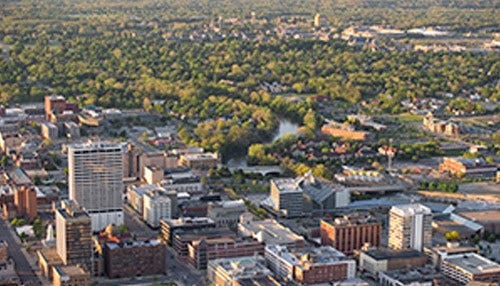City, University Part of National Tech Program
 The program
The program
Subscriber Benefit
As a subscriber you can listen to articles at work, in the car, or while you work out. Subscribe NowThe city of South Bend and the University of Notre Dame are part of a 20-member partnership designed to improve municipal and school services through technology. The MetroLab Network, part of the nationwide Smart Cities Initiative, will involve innovations in infrastructure and other public and private sector priorities to address "critical community needs."
Notre Dame ESTEEM Graduate Program in Entrepreneurship Director David Murphy will lead UND’s side of the program. He said "Notre Dame and South Bend will work closely together to address some of the city’s most pressing issues. Using the latest innovations in technology, Notre Dame researchers, faculty and students will develop solutions that positively impact our community. One of the interesting aspects of this Network is being able to share our efforts here in South Bend with other communities around the country. We also expect to learn a great deal from colleagues working on projects in other cities which may apply to the needs of our own community."
Mayor Pete Buttigieg says the the program puts the city in the national spotlight. "It’s an opportunity to use new technologies and ideas to deliver faster, better, less costly services for residents. Partnering with Notre Dame, South Bend will tap into cutting-edge thinking to provide a high quality of life and keep adding jobs in an era of tight budgets and scarce resources. This is the future of what it means to be a university city."
The Notre Dame/South Bend portion of the initiative will focus on four target areas: infrastructure, city services, democratic governance and public policy and management.
The university says the first year will involve four projects:
- Bowman Creek Project: Create a test bed for the development of “Internet of things” applications and the relationship between these systems and people, starting with environmental applications.
- Neighborhood Report Card: Use advanced mathematical modeling to assess the effectiveness of the service portfolio of the city and suggest optimal improvements for services.
- Community-Based Research: Enhance the relationship between residents and data; improve the ability of students and residents to produce and analyze city data.
- Wireless Institute: Develop an understanding of the modern environment for urban wireless users; create a test bed/framework to test the next generation of wireless technologies for urban environments.
